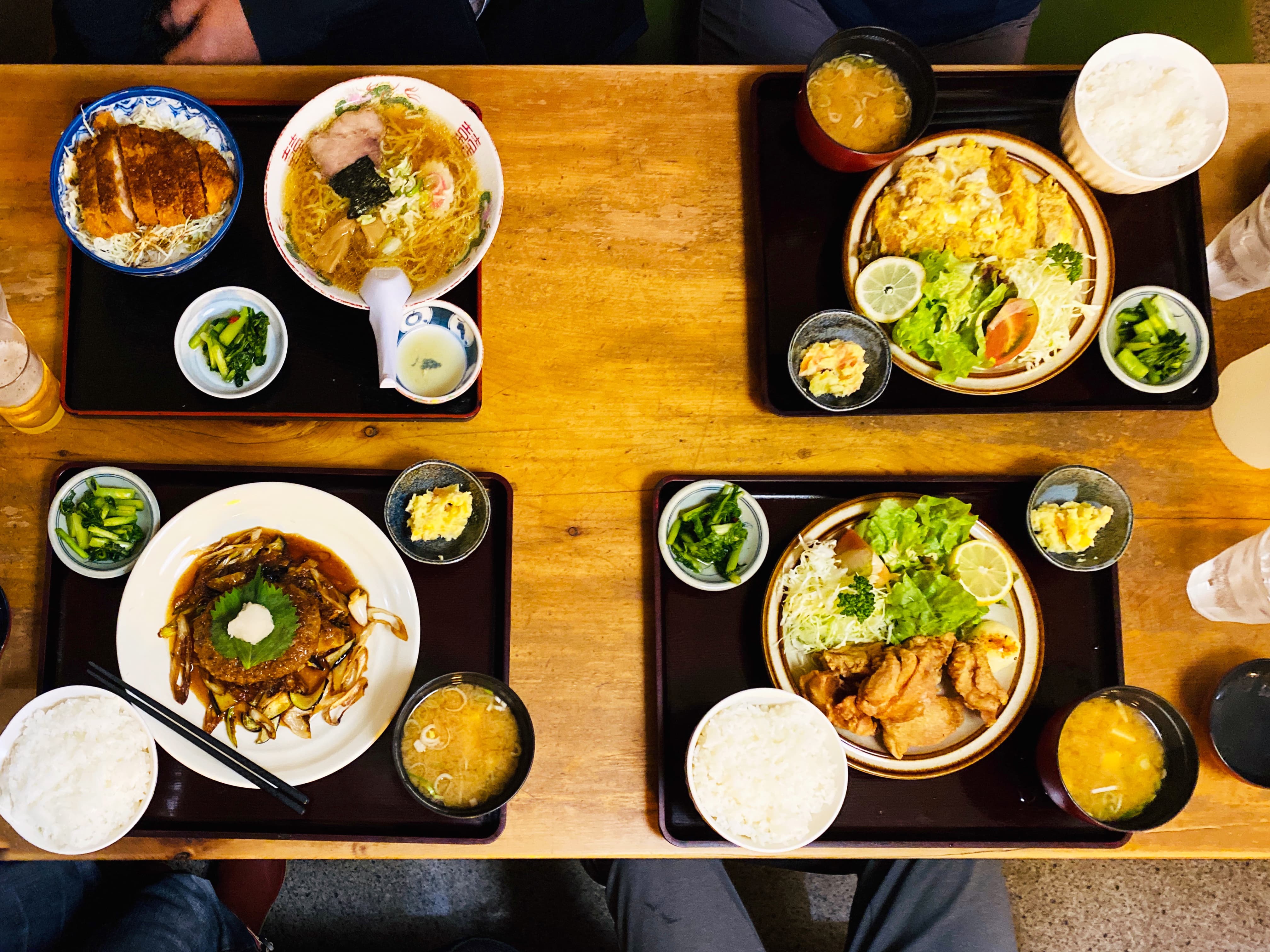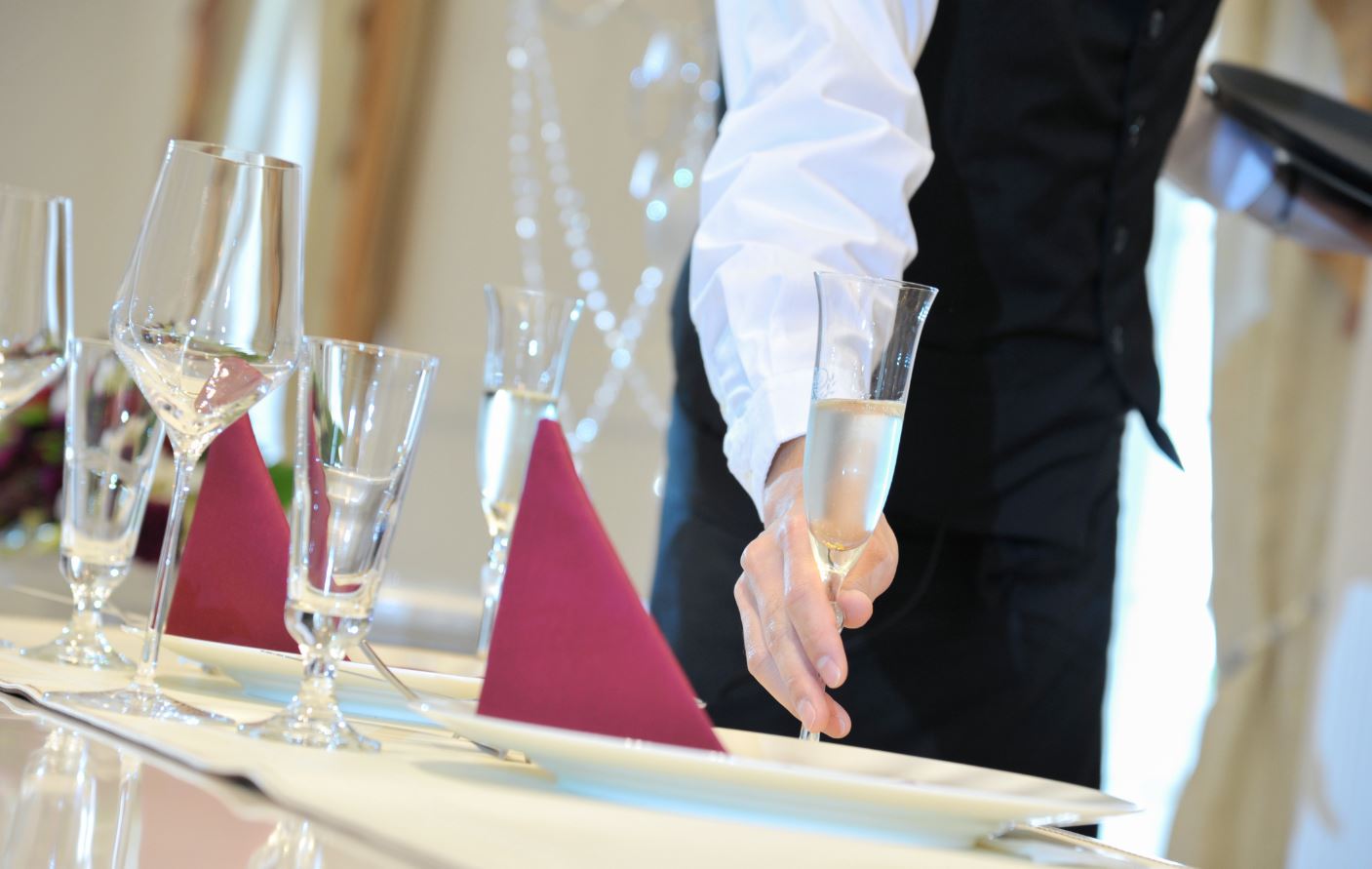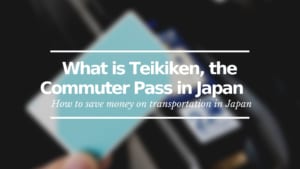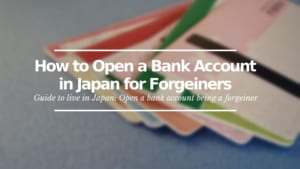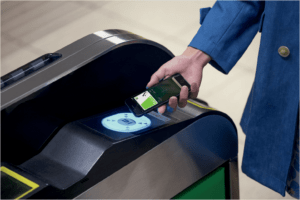Useful Japanese Phrases to use at Restaurants
Japanese conversation at restaurants
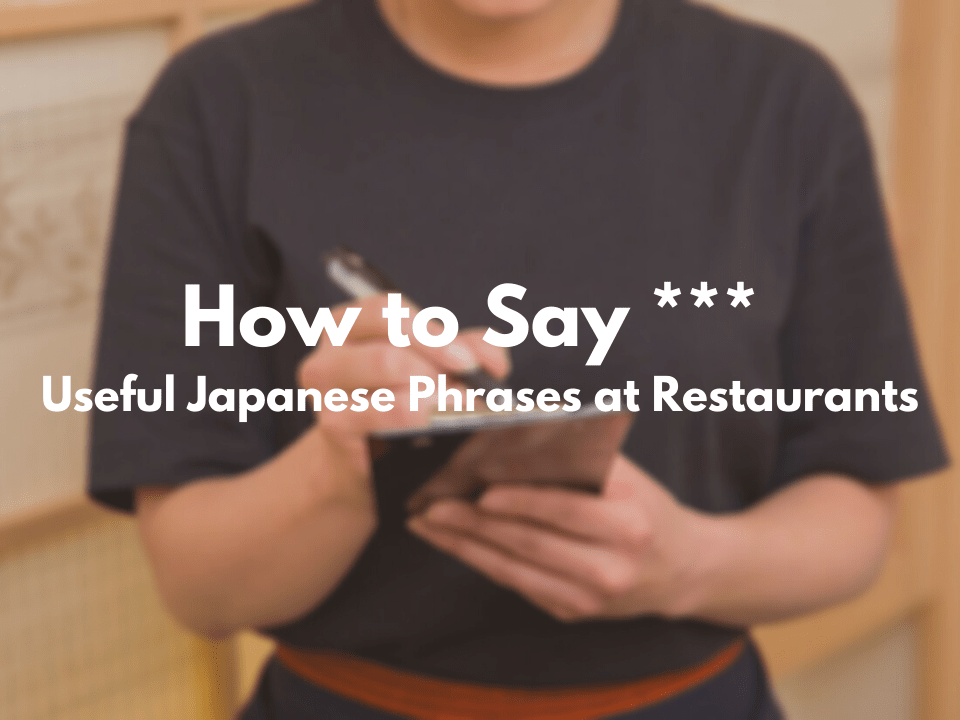
Whether you’re living in Japan or just visiting, going to a restaurant is something you will most probably do. Especially if you’re visiting Japan, going to restaurants and trying out authentic Japanese food is a must.
Although many restaurants in Japan can be enjoyed without that much Japanese interaction (e.g. many restaurants have machines where you can buy a ticket for whatever you want to order), you will be needing some Japanese language knowledge when you go to a formal restaurant.
To avoid any sort of panic due to an unexpected Japanese question from the restaurant employee, I have listed the main things a restaurant employee may ask you when you go eat at a restaurant in Japan.
By just knowing some of the basic Japanese phrases, your restaurant experience will turn into a much more enjoyable one.
I also included how you could answer these questions so that the communication can go smoothly.
I hope this helps you.
Phrases the employee might say (and how to respond)
 1. “Irasshaimase!” (いらっしゃいませ!)
1. “Irasshaimase!” (いらっしゃいませ!)
“Welcome!”
This is the first thing you will hear when you enter a restaurant. You don’t need to answer or say anything. If you notice the employee is smiling at you, you may slightly nod.
2. “Nan mei sama desuka?” (何名様ですか?)
“how many people?”
After greeting you by saying “Irasshaimase”, they will ask you how many people are in your group.
Another way they could ask this same question is “Nan nin desuka?” (何人ですか?).
To answer this, choose the number of people from the following.
- “Hitori desu” (一人です): One person
- “Futari desu” (二人です): Two people
- “San-nin desu” (三人です): Three people
- “Yonin desu” (四人です): Four people
- “Gonin desu” (五人です): Five people
3. “Kin-en seki de yoroshi-desuka?” (禁煙席で宜しいですか?)
“Is a non-smoking seat good for you?”
Nowadays, many restaurants don’t even have smoking areas anymore. But if they do have smoking areas, they will ask you this.
Another way they could ask is “tabako wa suwaremasuka?” Which means “Do you smoke?”. There are many ways they could ask this question, so what I would recommend is to identify if they say the word “Kin-en” or “Tabako”. If you’re able to identify these words, answer in the following way.
- “Tabako suimasu” (タバコ吸います): I smoke
- “Tabako suimasen” (タバコ吸いません): I don’t smoke
4. “Yoyaku wa arimasuka?” (予約はありますか?)
“Do you have a reservation?”
If you go to a famous restaurant or if the restaurant that you happen to go to is full, they might ask this.
To answer, use the following phrases.
- “Hai. Yoyaku shimashita” (はい、予約しました): Yes, I do have a reservation.
- “Iie. Yoyaku shiteimasen” (いいえ、予約していません): no, I don’t have a reservation.
5. “Nomimono wa okimari desuka?” (飲み物はお決まりですか?)
“Have you decided on your drinks?”
After you have seated and looked at the menu for a while, they’ll ask you this.
Another way they could ask this same question is “Gochu-mon wa okimari desuka?” (ご注文はお決まりですか?) which means “Have you decided on your order?”.
If you’ve decided, just say “Hai” (はい) which means “Yes” and proceed to order. If you haven’t made up your mind yet, then say “Mou sukoshi jikan wo kudasai” (もう少し時間をください) which means “We need a little more time, please”.
6. “Onomimono wa itsu omochi shimashouka?” (お飲み物はいつお持ちしましょうか?)
“When would you like for me to bring your drinks?”
Usually, they will ask you this at a cafe or if you order coffee or tea at a restaurant.
To answer, use the following phrases.
- “Shokuzen ni onegaishimasu” (食前にお願いします): Please bring it before the food
- “Shokuji to issho ni onegaishimasu” (食事と一緒にお願いします): Please bring it with the food (at the same time)
- “Shokugo ni onegaishimasu” (食後にお願いします): Please bring it after the food
7. “Tsuika no gochu-mon arimasuka?” (追加のご注文ありますか?)
“Would you like to order something else?”
They might ask you this at a bar or Izakaya if your glass is empty.
To answer yes, just say “Hai” (はい) and proceed to order. If you don’t want to order yet, say “Mada daijoubu desu” (まだ大丈夫です) which means “I’m fine right now”.
8. “〇〇 Rasuto ooda ikaga desuka?” (〇〇ラストオーダーいかがですか?)
“Last call for 〇〇?”
If you’re at a restaurant or bar, and it gets close to closing time, they will come and ask for last calls. Usually, the last call for food comes about 30 minutes before the last call for drinks.
- “Oshokuji no rasuto ooda ikaga desuka?” (お食事のラストオーダーいかがですか?): Last call for food?
- “Onomimono no rasuto ooda ikaga desuka?” (お飲み物のラストオーダーいかがですか?): Last call for drinks?
They might ask this question in a different way, but if you hear the word “Rasuto Ooda” then you can be sure that this is what they are asking.
To answer yes, just say “Hai” (はい) and proceed to order. If you don’t want to order anything else, say “Daijoubu desu” (大丈夫です) which means “I’m fine”.
9. “Arigatou gozaimashita!” (ありがとうございました!)
“Thank you very much!”
When you’re leaving a restaurant they say this to you, you can answer “Gochisou sama deshita” (ごちそうさまでした) which is the Japanese way of saying “Thank you for the food”. You can actually say this even before they say thank you.
Useful Phrases (How to say 〇〇)
 1. How to say “I have a reservation”
1. How to say “I have a reservation”
“Yoyaku wo shimashita” (予約をしました)
If you have made reservations for a restaurant, then you can say this to the restaurant employee who welcomes you.
2. How to say “Non-smoking seat, please”
“Kin en seki wo onegai shimasu” (禁煙席をお願いします)
If you want a “Smoking seat”, then replace “Kin en seki” with “Kitsu en seki”. But nowadays, it is difficult to find restaurants that have smoking seats.
3. How to say “excuse me” to call a table attendant.
“Suimasen” (すいません)
You can either say “Suimasen” which means “excuse me”, or you can just raise your hand while making eye contact.
4. How to say “May I have the menu, please?”
“Menyuu onegai shimasu” (メニューお願いします)
This is just in case the table attendant forgets to give you the menu.
5. How to say “Do you have an English menu?”
“Eigo no menyuu wa arimasuka?” (英語のメニューはありますか?)
If they have an English menu, it’s most probable that they would give it to you even if you don’t ask. But it’s still good to know how to ask just in case.
6. How to say “Do you serve vegetarian food?”
“Bejitarian taiou shiteimasuka?” (ベジタリアン対応してますか?)
You can also replace “Bejitarian” with the following.
- “Biigan” (ビーガン): Vegan
- “Hararu” (ハラル): Halal
※Note: Since these kinds of foods are rare in Japan, it is most likely that they will have it written somewhere in the entrance if they do serve vegetarian, vegan, or Halal food.
7. How to say “I will have this, please”
“Kore kudasai” (これください)
If you are not sure how to pronounce something on the menu, this is the simplest way to order. Say this while pointing what you want to order on the menu.
8. How to say “With no ice, please”
“Ko-ri nashi de onegaishimasu” (氷なしでお願いします)
I know many people like their drinks without ice.
9. How to say “What’s your recommendation?”
“Osusume wa nandesuka?” (おすすめはなんですか?)
If you can’t decide on what to order, this is a practical way to make a decision.
10. How to say “How much does this cost?”
“oikura desuka?” (おいくらですか?)
In most cases, the price will be indicated on the menu. But if it doesn’t have the price indicated, you can ask.
11. How to say “I have 〇〇 allergy”
“Watashi wa 〇〇 arerugii desu” (私は〇〇アレルギーです)
Food allergies are no joke. If you are allergic to a certain food, be sure to mention it at every restaurant you go.
- “Tamago” (たまご): Egg
- “Ebi” (エビ): Shrimp
- “Piinattsu” (ピーナッツ): Peanut
- “Guruten” (グルテン): Gluten
12. How to say “Is there 〇〇 in this?”
“Kore ni 〇〇 haitte masuka?” (これに〇〇入ってますか?)
Maybe it is something you are allergic to or just something that you don’t like. In any case, if you want to ask if there’s something specific inside the food, replace the 〇〇 with that specific thing you want to ask about. Here are some examples.
- “Wasabi” (わさび): Wasabi
- “Nin niku” (にんにく): Garlic
- “Niku” (肉): Meat
13. How to say “Please don’t put 〇〇 in it, please”
“〇〇 nashi de onegaishimasu” (〇〇なしでお願いします)
Same as the previous question. If there’s something specific that you don’t want in your food, just replace it with the 〇〇.
- “Wasabi” (わさび): Wasabi
- “Nin niku” (にんにく): Garlic
14. How to say “Is this spicy?”
“Kore wa karai desuka?” (これは辛いですか?)
This is for those who don’t like spicy food.
15. How to say “I dropped my 〇〇”
“〇〇 otoshimashita” (〇〇落としました)
If you drop your fork or chopsticks, you can say this to the table attendant, and he/she will bring you a new one.
- “Ohashi” (お箸): Chopsticks
- “Supu-n” (スプーン): Spoon
- “Fo-ku” (フォーク): Fork
- ”Oshibori” (おしぼり): Hand towel
16. How to say “Excuse me, may I order?”
“Suimasen, tsuika chu-mon onegai shimasu” (すいません、追加注文お願いします)
This is what you say when you want to order something extra after you have already ordered something.
17. How to say “Can I have some water, please?”
“Omizu kudasai” (お水ください)
For when you want some water.
18. How to say “Check, please”
“Okaikei onegaisimasu” (お会計お願いします)
when you are all set and ready to pay, just say this to the table attendant and they will bring you the check.
There are some restaurants where you pay at the cash register near the exit. In that case, the table attendant will point at the place where you pay while saying “Okaikei wa achira de onegaishimasu” (お会計はあちらでお願いします) which means “Please pay the check over there”.
19. How to say “Where is the bathroom?”
“Otearai wa doko desuka?” (お手洗いはどこですか?)
Always an important phrase to know. You could also replace the word “Otearai” with “Otoire” and it will mean the same thing.
20. How to say “Are you open now?”
“Ima aitemasuka?” (今開いてますか?)
Sometimes, you might walk by a restaurant but won’t be sure if it’s open. This is how you ask if it’s open at that moment.
21. How to say “Until what time are you open?”
“Nanji made aitemasuka?” (何時まで開いてますか?)
If you pass by a restaurant and it doesn’t say until what time they are open, then this is how you can ask.
22. How to say “How long is the waiting time?”
“Machi jikan wa dorekurai desuka?” (待ち時間はどれくらいですか?)
If you see that a restaurant is full and you don’t have reservations, this is how you can ask how long will it take for you to get in.
The restaurant employee might tell you that soon you will be able to get in, or they might tell you that it will take a while.
“Yes” and “No”
There are many ways you can answer to the restaurant employee, but these are the most common and safe ways to say either “yes” or “no”.
“Hai, onegai shimasu” (はい、お願いします): Yes, please.
If they’re offering something(e.g. offering to refill your glass of water), then this is how you respond. But if the question is something you can simply answer with “yes” (e.g. confirming your order), then you can simply say “Hai”.
“Daijobu desu” (大丈夫です): No, thank you.
There are other ways to say “no” such as “Iie” (いいえ) or “Kekkou desu” (結構です), but depending on the way or tone you say it it might sound rude to some people. Therefore, it is just safer to say “Daijobu desu”. You can add a small wave gesture with it and you’ll seem more Japanese.
Restaurant Vocabulary Recap
- “Ohashi” (お箸): Chopsticks
- “Supu-n” (スプーン): Spoon
- “Fo-ku” (フォーク): Fork
- “Menyuu” (メニュー): Menu
- “Dorinku Menyuu” (ドリンクメニュー): Drink Menu
- “Onomimono” (お飲み物): Drink
- “Omizu” (お水): Water
- “Ko-hi-” (コーヒー): Coffee
- “Ocha” (お茶): Tea
- “Okaikei” (お会計): The bill (Check)
- “Oshibori” (おしぼり): Hand towel
- “Otearai” (お手洗い) or “Otoire” (おトイレ): Bathroom
- “Rasuto Ooda” (ラストオーダー): Last call
I hope this article helps you when you come to visit Japan or if you are planning on living in Japan in the near future.
Want to know more tips for living in Japan? Check out the following articles!
▽Related Articles▽
▼Editor’s Picks▼
Written by
Born and raised in Costa Rica, I started living in Tokyo from college. I love traveling within Japan & around the world. Since I wasn’t born in Japan, I know the cultural impact that you can get when visiting Japan for the first time and what you might be worried about before your trip. And I’ve lived long enough to somewhat understand the nuances of the Japanese culture that make this country such an attractive place to visit. Hopefully I can provide to you both the information you’re looking for and the information you didn’t know you needed to know.





 1. “Irasshaimase!” (いらっしゃいませ!)
1. “Irasshaimase!” (いらっしゃいませ!)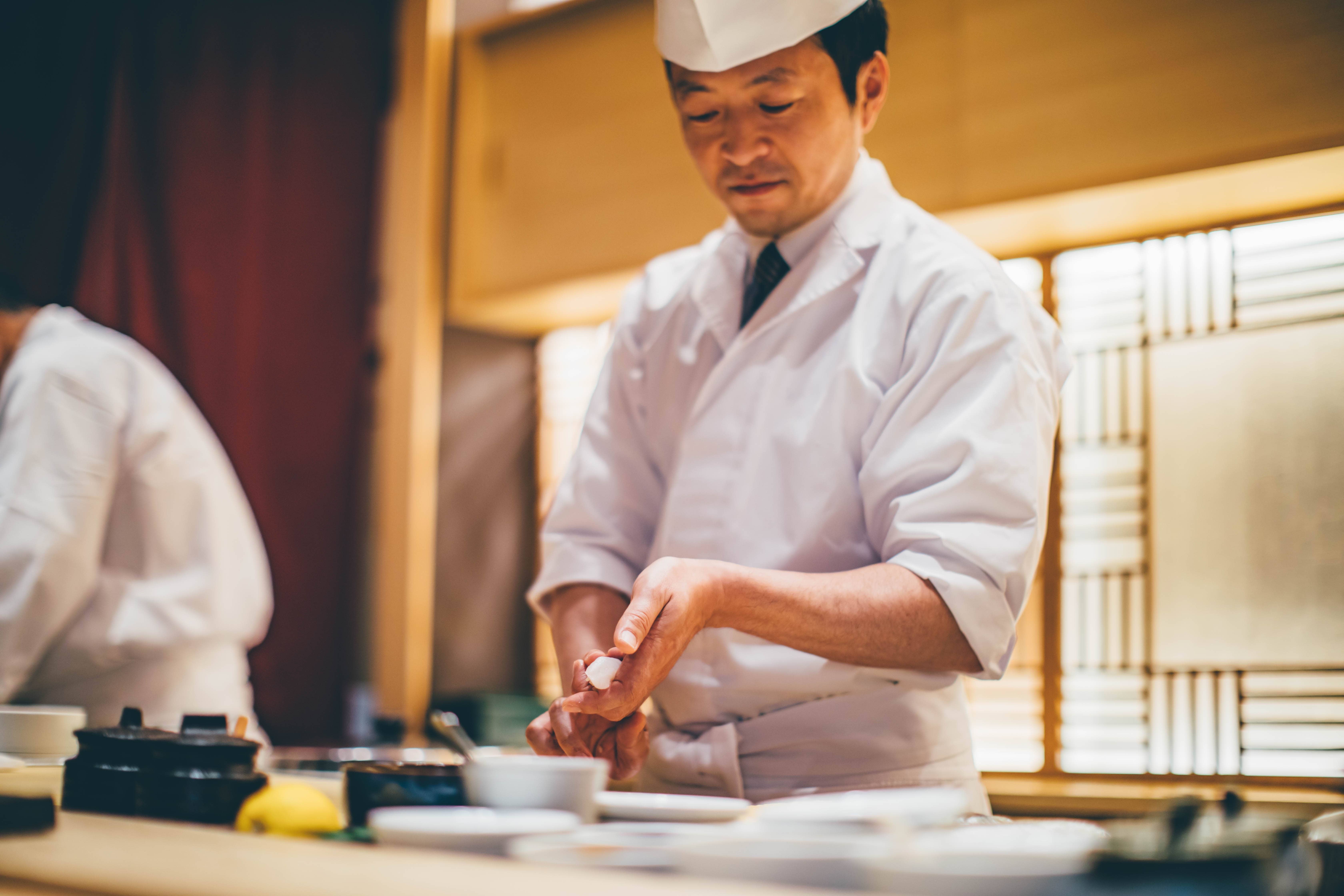 1. How to say “I have a reservation”
1. How to say “I have a reservation”